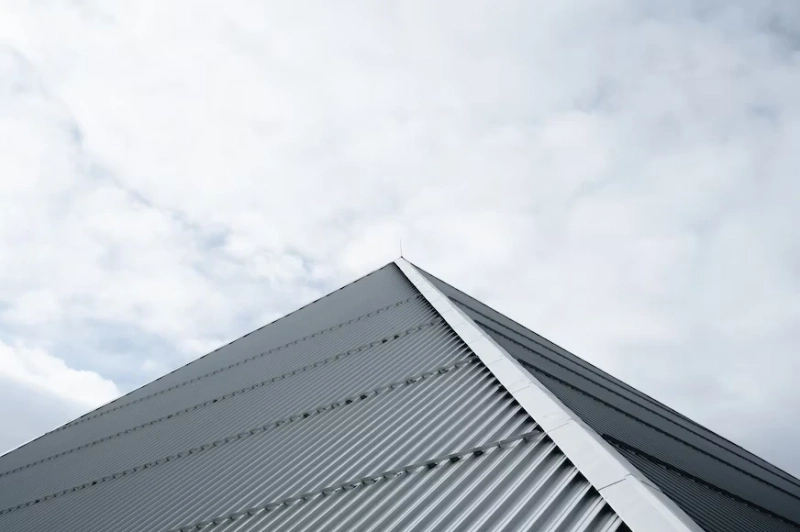Roofing projects are significant investments for homeowners in Virginia. Whether you are installing a new roof or repairing an existing one, careful budgeting is crucial to ensure that the project stays within your financial constraints.
Effective budgeting will not only help you avoid unexpected expenses but also ensure that you get the best value for your money. In this article, we will explore essential tips for budgeting your roofing project in Virginia, helping you make informed decisions and achieve a successful outcome.
Assess Your Roofing Needs
The first step in budgeting for a roofing project is to assess your needs. Conduct a thorough inspection of your roof to identify any issues that need to be addressed. Look for signs of damage, leaks, missing shingles, or sagging areas. Determine if the entire roof needs replacement or if roof repairs in Virginia are sufficient to restore its integrity. By understanding the scope of work required, you can estimate the materials, labor, and time needed for the project accurately.
Obtain Multiple Quotes
Once you have assessed your roofing needs, it's essential to get quotes from multiple roofing contractors. Reach out to reputable roofing companies in Virginia and request detailed quotes for your specific project. Ensure that the quotes include all the necessary materials, labor costs, permits, and any additional expenses. By obtaining multiple quotes, you can compare prices, services, and warranties offered by different contractors, enabling you to make an informed decision and choose the best option that fits your budget.
Consider Material Options
The choice of roofing materials significantly impacts the overall cost of your project. Virginia homeowners have various options to choose from, including asphalt shingles, metal, wood, slate, and tile. While asphalt shingles are the most affordable, premium materials like slate and metal are more expensive but offer increased durability and longevity. Take into account the climate in Virginia, your home's architectural style, and your long-term goals when selecting the roofing material. Although higher-quality materials may require a larger upfront investment, they can save you money on repairs and replacements in the long run.
Plan for Contingencies
During a roofing replacement in Virginia, unforeseen issues may arise, which can add to the total cost. To avoid financial strain when such situations occur, it is essential to plan for contingencies in your budget. Set aside a contingency fund of around 10% to 20% of the total project cost. This buffer will provide you with peace of mind, knowing that you have funds available to address any unexpected challenges that may arise during the roofing process.
Explore Financing Options
Roofing projects can be costly, and not everyone may have the funds readily available. If your budget is limited, consider exploring financing options. Many roofing contractors offer financing plans, allowing you to spread the cost of your project over time. Additionally, you can look into home improvement loans, home equity lines of credit (HELOC), or government-sponsored programs that offer financial assistance for energy-efficient roofing upgrades. However, it's crucial to carefully review the terms and interest rates before committing to any financing option.
Schedule the Project Wisely
The timing of your roofing project can also impact the overall budget. In Virginia, roofing work can be affected by seasonal weather patterns. Winter and early spring tend to have colder temperatures and increased precipitation, which may slow down the roofing process. Summer months might be more conducive to roofing projects but can also be busier for contractors, potentially leading to higher costs. Consider scheduling your roofing project during the shoulder seasons when the weather is mild, and demand for roofing services is relatively lower.
Prioritize Roof Maintenance
One of the most effective ways to budget for a roofing project in Virginia is to prioritize regular roof maintenance. Proactive maintenance can extend the lifespan of your roof and prevent costly repairs. Schedule annual inspections and address minor issues promptly before they escalate into major problems. By investing in maintenance, you can save money in the long run by avoiding more significant and costly repairs or premature roof replacements.
Opt for Energy-Efficient Roofing
Virginia experiences both hot summers and cold winters, making energy efficiency a critical consideration for homeowners. Energy-efficient roofing materials and techniques can help you save on heating and cooling costs throughout the year. Choose roofing materials with high reflectivity and insulation properties to reduce energy consumption. While energy-efficient roofing may have a slightly higher upfront cost, the long-term savings on energy bills make it a financially sound investment.
Conclusion
Budgeting the project of new roof cost in Virginia requires careful consideration of your needs, material options, contractor quotes, and potential contingencies. Take the time to assess your roof, obtain multiple quotes, and explore financing options if needed.
Prioritize regular roof maintenance and opt for energy-efficient roofing materials to save on future costs. By following these tips and making informed decisions, you can successfully complete your roofing project within your budget while ensuring the protection and longevity of your home. Remember that investing in a quality roof will not only add value to your property but also provide you with peace of mind for years to come.


